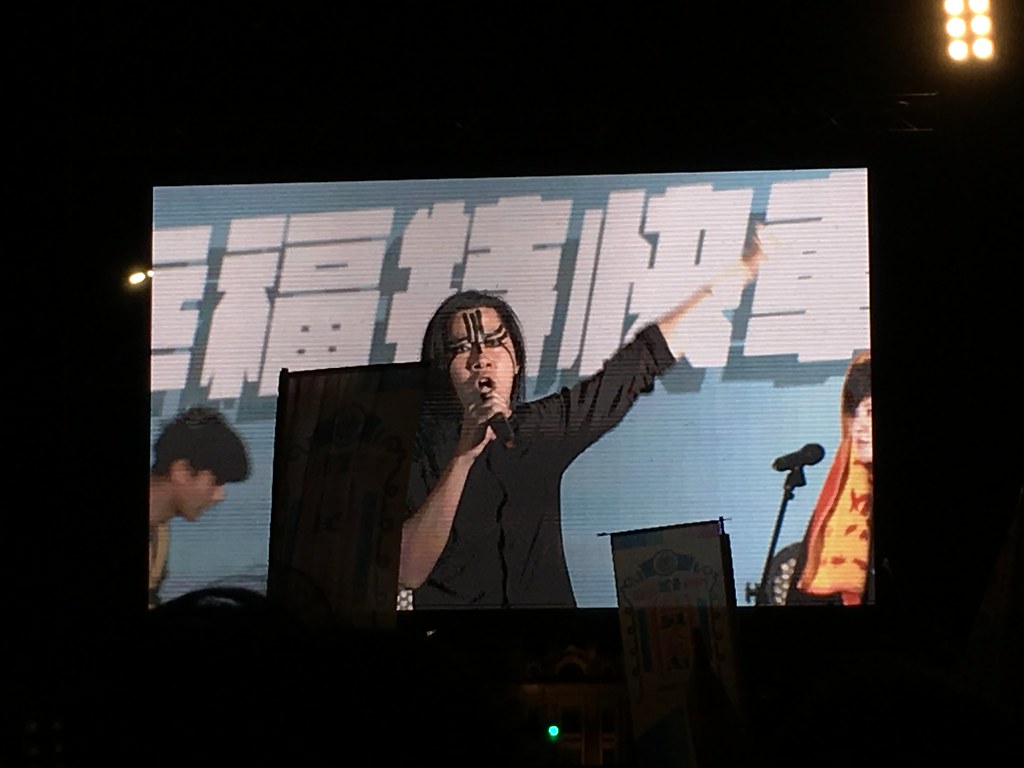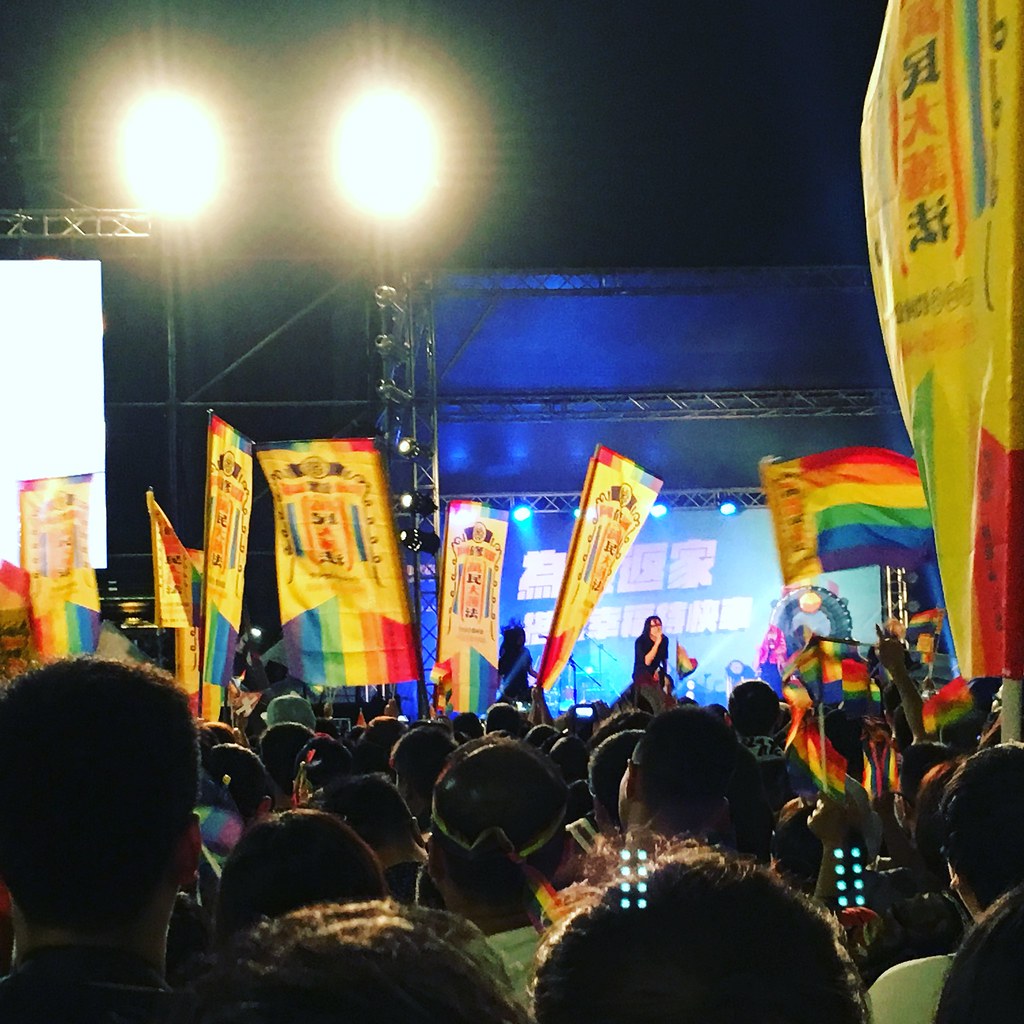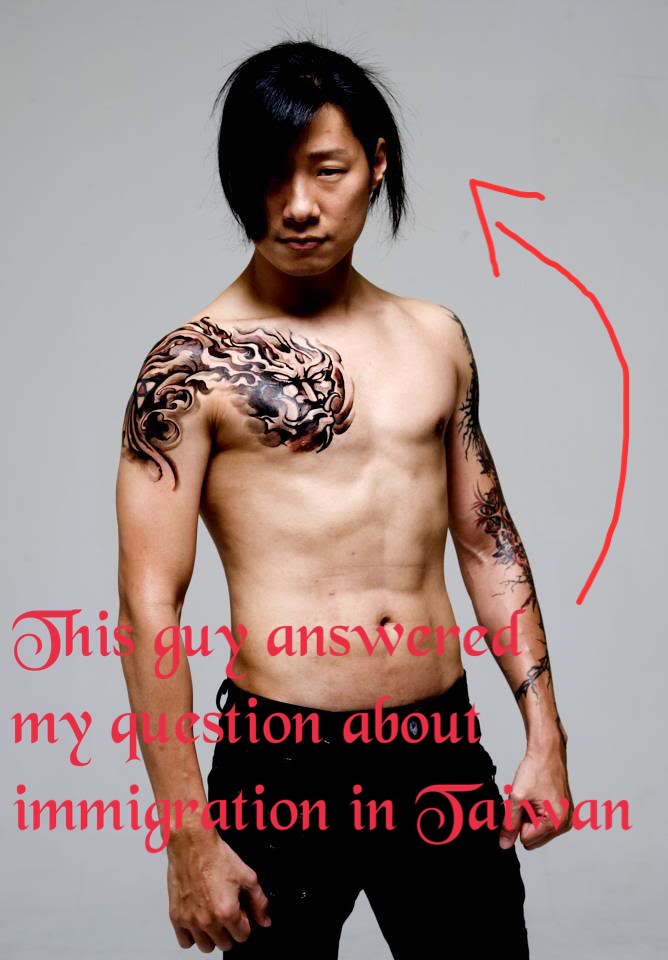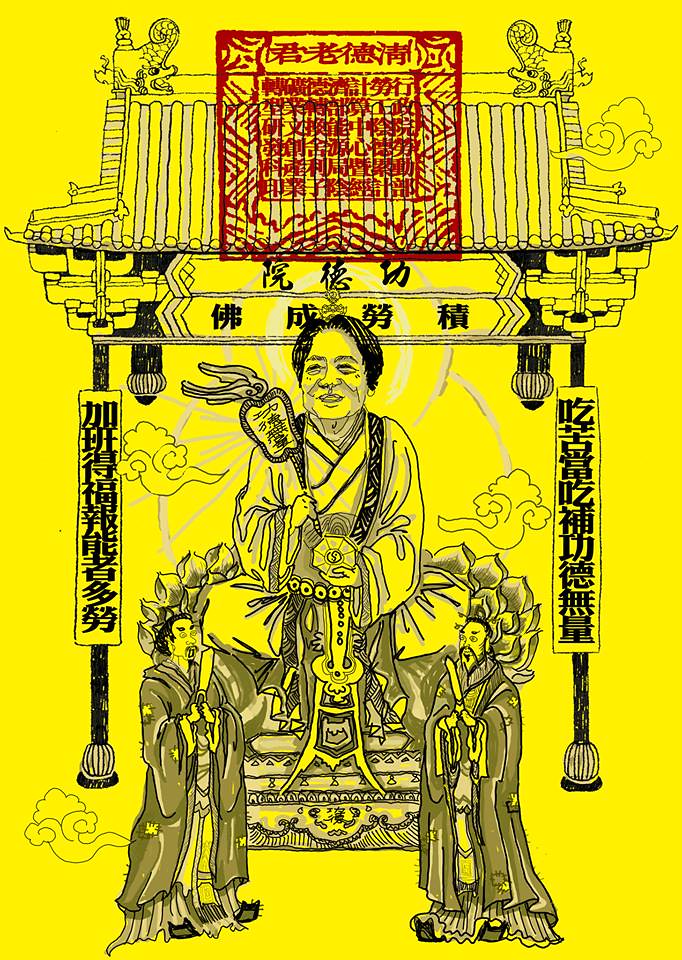 |
| Sexy Legislator and Chthonic frontman Freddy Lim, performing at the Taipei pro-marriage equality rally on December 18th in support of three pro-LGBT referendums |
Hong Kong continues its unwilling slide into authoritarianism at the hands of China with the cancellation of a performance by Taiwanese black metal band and all-around great musical act Chthonic. There had been talk on Facebook by the band that it might perform without its frontman/vocalist, Freddy Lim, but even that plan seems to have been cancelled.
Update: apparently Freddy's visa was denied because he lacks "special skills" that are "not available in HKSAR". Freddy responded by saying he was "practicing cartwheels and backflips" (to be better qualified to work in Hong Kong).
This is obviously nonsense. Chthonic has performed in Hong Kong before; being denied now points to growing CCP influence there, not any 'lack of special skills'. I personally remember Hong Kong as being far more open just a few years ago. Since then, political parties not aligned with China have been targeted and banned, with activists and elected legislators from those parties jailed. While technically freedom of speech remains a right that Hong Kongers may enjoy, in practice that's no longer the case: remember all those bookstores that sold reading material banned in China, specifically books critical of the CCP and its top officials? Those are gone now (though you can still buy the books from street vendors).
It also points to the growing political clout of Chthonic frontman and sexy legislator Freddy Lim, who (according to the article above) was denied a visa to Hong Kong after becoming an elected member of the legislature through the New Power Party. Lim had been to Hong Kong before, as well.
And that brings me to my main point: authoritarians have crap taste in music. I'm sorry, they just do. Chthonic was denied because of what they stand for: they are very pro-independence, and their music is steeped in Taiwanese history and folklore. They don't even sing in Mandarin, and they stand for a number of progressive causes including marriage equality. This scares the CCP - no music that makes any sort of real political statement (Communist propaganda music...doesn't count as music) is terrifying to them.

But music - good music at least - is fundamentally political. It makes a statement, or at least stands for something. Good bands stand for something, even though that might not be evident in individual songs (for example, what Ani DiFranco stands for infuses all of her music, even her love songs which don't have anything directly to do with politics. You could say the same for Joni Mitchell or even groups not immediately identified with political music like The Talking Heads.)
Music under authoritarian regimes, however, can't ever stand for anything. Only - as a friend put it - "Canto-pop and Mando-slush" are acceptable in China. Context-free gunk about only the few topics that can be rendered apolitical - mostly love songs, and a few others including absolute nonsense music - can be allowed. They all sound kind of the same and they're so lightweight, they'd blow away in a light breeze. They tend to be earworms (that's how they hide their lyrical empty calories) but are also interchangeable and, to be frank, forgettable.
So, you wonder why "Mando-slush" all sounds kind of the same, with lyrics you could literally change out for anything because they just don't matter, it's not because people in Mandarin-speaking societies aren't good at creating music or are somehow culturally uncreative. I've heard that before and it's simply not true and frankly kind of racist. It's because in China, they risk their actual lives by being truly creative and writing songs that actually mean something. Outside of China, if they want to be allowed into the lucrative Chinese market, they have to churn out the same kind of tripe. Music with meaning will simply not be allowed in.
To be fair, people tell me that China, and especially Beijing, has a thriving underground hip-hop scene, and I guess I believe them? Maybe? But unless these underground artists are actively risking being 'disappeared' by the government, I can't imagine that what they sing stands for anything, either.
As such, I've noticed that the Taiwanese music I like tends to be banned in China, by artists who don't care if their music is allowed in the market there. They make music to make music, not primarily to make money. All the Taiwanese music I don't like - the love ballad gurgling, the motivational "you can do it!" crap that thinks it's edgy because there's an electric guitar played by a guy with spiky hair, the K-pop imitators, Jay Chou - is allowed in China, and hugely popular there. And it is, to be frank, terrible. All of it. (Yes, I know other people like that stuff. I don't care.)
To sum up, if an authoritarian government finds some music acceptable, that music is probably bad. At the very least, it's the tasteless, sugary white cake of music: unsatisfying, lacking basic nutrition, and will make you metaphorically corpulent and complacent if you consume too much of it.
So, it's no wonder that of all the music in a Chinese language which is popular internationally, Chthonic is one of the best-known outside Asia, for a niche market anyway.
News reports keep calling Chthonic a well-known band "in Asia", but I'd like to point out that, in the international black metal scene, they're quite well-known outside of Asia as well. Pretty much every black metal fan I know, even if they have no connection to Taiwan, knows Chthonic. All of them say the music is top-notch, and they transcend being a 'local act' by a very wide margin. They release English versions of all of their Taiwanese-language songs, Lim has held 'ask me anything'-style live interactive videos in English.
This is because Chthonic stands for something, and they put out genuinely good music because of it. Creativity and meaning are intertwined, and cannot be separated. Without meaning, art has no weight (which might just be why so much public art is forgettable, if not terrible - when you seek not to offend anyone, you inspire no-one). And that's why the same old love ballad recycled a hundred times with lyrics that you could just make up mockingly as you go along, with the parody indistinguishable from the original, will never find as much international acclaim.


